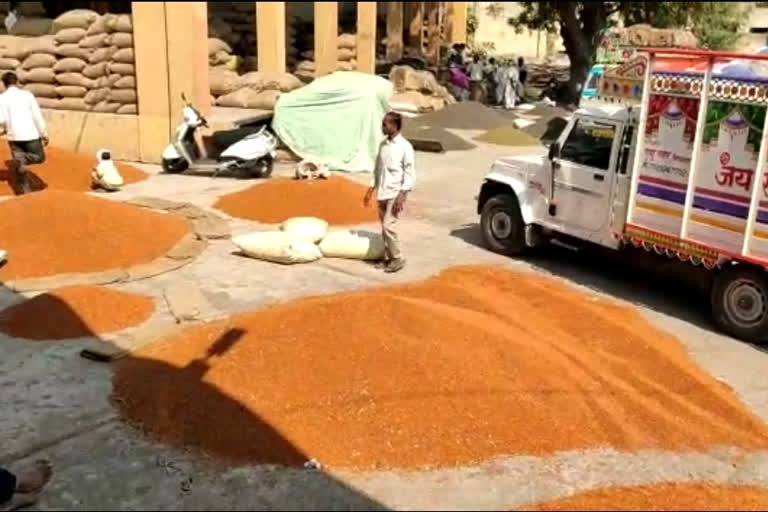Mumbai: In the last one week, the retail price of pulses in Maharashtra jumped by Rs 30 a kilogram due to panic buying, short supply due to bottlenecks in transportation and hoarding by the unscrupulous traders.
India's financial capital Mumbai, which is one of the worst affected cities by the COVID-19 has witnessed a surge in the prices of essential commodities.
At present, the market price of pulses is Rs 130 to Rs 135 per kg. At present, tur dal is being procured at the rate of Rs. 9,500 per quintal.
This is a picture of a sharp rise in prices when tur dal is sold in the market. So the general public is going to be overwhelmed.
According to sources, the prices of pulses are increasing due to heavy rains affecting production and increasing demand. As the import of pulses has stopped, the mill operators are also buying raw materials at extra charges.
The prices of pulses in October have increased due to the outbreak of Coronavirus. Before the ban, the price of pulses was Rs 85 to Rs 90 per kg. The price was approximately the same in September. However, in the last 15 days, tur dal has gone up by around Rs 30 per kg.
- Why the demand for pulses increased?
After the relaxation in the lockdown rules, hotels and restaurants in the state have opened up following October 5. Therefore, the demand for pulses is increasing. Demand for pulses is expected to increase on the occasion of upcoming Navratri, Dussehra, Diwali and wedding season.
The inflow of pulses in the market is less than the demand. Pulses have been stockpiled on a large scale. Doctors recommend emphasizing a protein-rich diet to boost immunity to protect against Coronavirus.
Also, in the corona crisis, many citizens have shifted their focus to pulses from vegetables. Due to this, the demand for pulses is increasing more than usual. Crops have been damaged due to heavy rains. As a result, the production declined as well.
While speaking to ETV Bharat, President, Mumbai Grain Market Association, Praveen Pagaria said, "Imports of cereals from abroad have been stagnant for the last year, leading to a severe shortage of goods. As a result, due to non-arrival of pulses, dealers have to buy raw materials at higher prices."
"As a result, prices of pulses have gone up," said Prem Kogata, president of Jalgaon Dalmil Owners Association. "About 30 to 40 per cent of the country's pulses are imported. Pulses are in demand throughout the year. Therefore, prices go up sharply," he said.
"When there is a shortage of pulses, the shopkeepers are selling at a discounted rate. Pulses prices are expected to rise further. There is a possibility of stockpiling by the merchant class when there is a gap between supply and demand. Consumers are expecting some relief if the government controls hoarding," he added.
"Excessive rainfall has affected cereal yields. Prices of various pulses have gone up by 25 to 30 per cent. The Jalgaon Agricultural Produce Market Committee has not yet received a new supply. Due to heavy rains, various crops have been damaged in Jalgaon district. Urad and Green Moong which arrive in August-September, are also not available in sufficient quantity. The imported dal is also of low quality," a shopkeeper said.
"It will take at least two months for the new tur dal to hit the market. Pulses prices may fall as market inflows increase. But farmers will have to wait three months to bring tur to market. In such a scenario, pulses prices are likely to rise further in the coming days," he added.
ALSO READ: Maharashtra: Police moots DNA test on cow to determine ownership right



